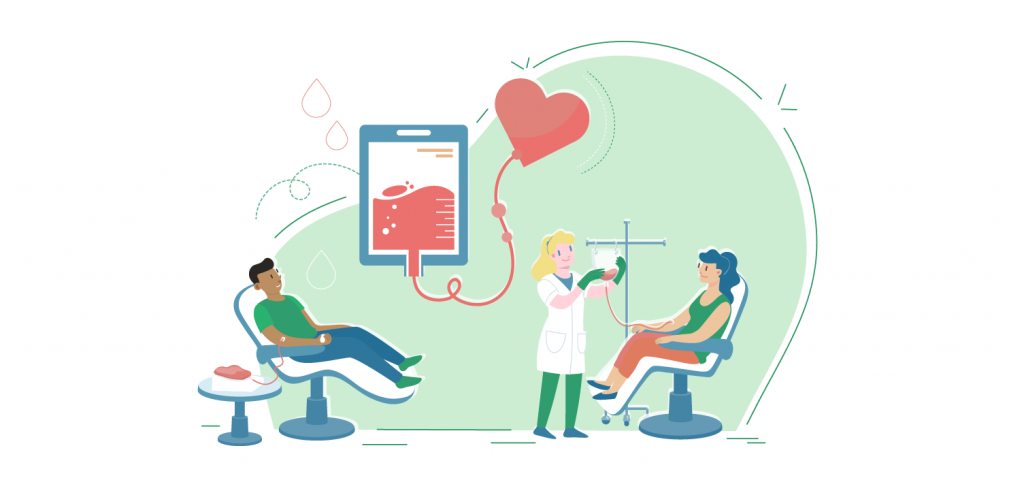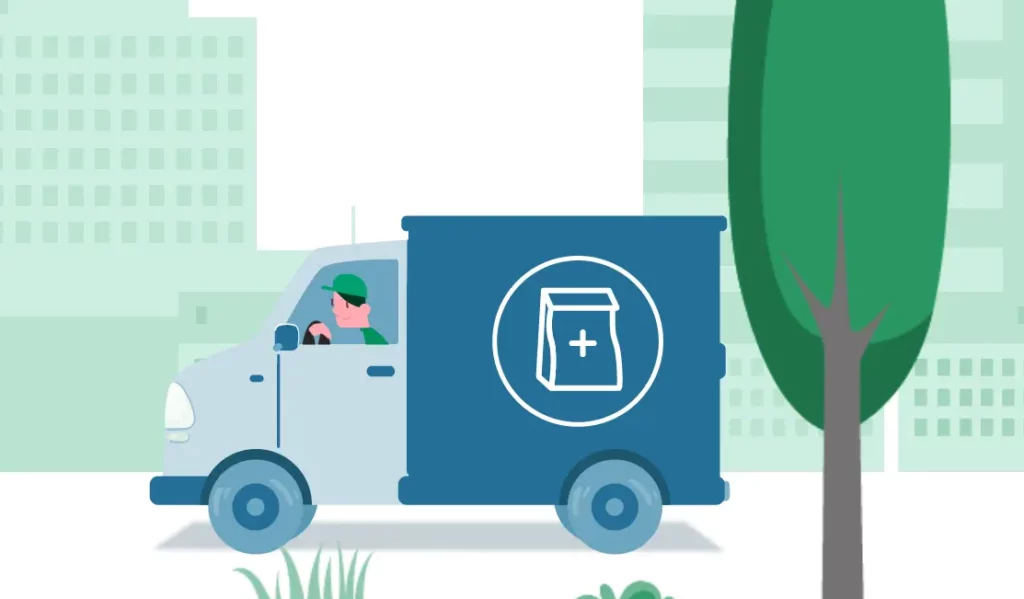Every year, the world celebrates World Blood Donor Day on the 14th of June.
The aim of the day is to raise awareness about the need for blood donations, and to thank those donors for their dedication to saving lives.
World Blood Donor Day is dedicated to:
- Celebrating and thanking blood donors
- Encourage people to start donating
- Raising awareness of the urgent need to donate
- Advocate for universal access to safe blood transfusion
- Mobilise international support for national blood programmes
On that note, please read on if you are considering donating but are still on the fence, plan to donate and would like advice on doing so or need to understand why blood donations are so important.
Why Donate
To put it simply, donating blood saves lives. There is a universal and critical need for not just blood, but safe blood.
Safe blood serves to improve the quality of those with life-threatening conditions, to support a variety of medical procedures, to treat wounds in emergencies, and to play vital roles in maternal and neonatal care.
Unfortunately at this moment in time, safe blood is inaccessible to many due a limited number of donations and equipment for testing the blood. Blood donation services are in operation 365 day a year, and have stated that they are in need of about 135,000 donors.
A single donation can save three lives.
This is where you and I come in.
Besides the important benefits of donating blood to the millions that may need it, there are also health benefits to those that donate, aside from the benefits we feel when helping people.
By its nature, in order to donate blood you will be required to undergo a health screening to ensure that it is safe for you to donate (these checkups would generally be free, even in places where you would ordinarily pay). This screening could help detect some medical conditions and provide an insight in your current state of health.
They will check your:
- Body temperature
- Pulse
- Blood pressure
- Hemoglobin levels
Your blood will also be tested for diseases including hepatitis B and C, HIV and syphilis.
The Mental Health Foundation has also reported that helping others can:
- reduce stress
- improve your emotional well-being
- benefit your physical health
- help get rid of negative feelings
- provide a sense of belonging and reduce isolation
Donating Safely
If you have decided to donate, or would like to consider donating, it’s important to know how to prepare and understand what the risks could be.
Before You Donate – How To Prepare
Arguably the most important way to prepare is to stay hydrated as half of your blood is made up of water.
Losing blood, through donations or otherwise has a significant effect on your iron levels. To help reduce the risks of side effects of this such as fatigue and iron deficiency anemia, increase your iron intake before your donation.
Foods high in iron include:
- Meats – beef, ham, pork…
- Poultry – chicken, turkey…
- Fish and shellfish – tuna, shrimp, haddocks…
- Organs – liver…
- Eggs
(for the following foods, the iron is less easily absorbed)
- Vegetables – spinach, sweet potatoes, peas, broccoli…
- Breads and cereals – white bread, enriched cereal, whole-wheat bread…
- Fruits – strawberries, watermelon, raisins…
- Beans – tofu, kidney, lentils…
Fruits high in vitamin c are also an excellent way to help boost your iron levels.
Avoid:
- Alcohol
- Fatty foods
- Iron blockers
- Aspirin
Risks – Side Effects
For healthy adults, blood donation is safe and without risk of contracting disease from the equipment.
Most people won’t experience side effects from donating blood, especially if you prepared well beforehand. However some may feel nauseous or lightheaded for a few minutes after.
You may also experience some bruising and bleeding where the needle was. This is generally minimal and harmless, and will go away in time.
It is generally considered safe to return to your normal activities once you’ve finished and have had a snack and drink. Although the Red Cross advises that for the rest of the day, you avoid heavy lifting and vigorous activity.
After You Donate – How To Recover
Even if you’ve followed the above tips, you still will have lost a significant enough amount of blood. You will be provided a snack and drink to help stabilise your blood sugar levels.
If you experienced lightheadedness or nausea, lie down with your feet up to help alleviate these symptoms.
For 24 hours after donating, you will need to ensure you replenish your fluids. You can do this by drinking an extra 4 cups of water, and avoiding alcohol.
How It Works
How To Start
If you choose to go ahead with giving a blood donation (first of all thank you!) you will need to start off by registering. You can do this on the NHS Blood & Transplant Website.
You will first need to answer some questions to confirm your eligibility to donate (there are also blood donation calculators online available that you can check beforehand), and then proceed to the registration process. This can include providing identification and your medical history.
Once this is done, you will be contacted confirming your registration along with an invitation to book your appointment to donate. A donation station/centre will be recommended for you based on your location. There are permanent donation centres available across the UK, but there may also be some community-based venues (otherwise known as mobile donation centres) that are created on a temporary basis.
The Donation Process
A simplification of the process would be that you will have a quick health screening, a needle will be entered into your arm, and your blood will be collected through a connected wire where it’ll enter a blood bag. In about 5-10 minutes, once the bag has reached the required weight, the needle will be removed and your arm will be sterilised.
When giving blood, you’ll tend to donate about one pint, which your body will replenish within 24 hours.
When you registered to donate, you are likely to have been given information about the process, but if you haven’t it is available on the NHS Blood & Transplant website.
Are You Eligible?
The rules regarding being able to give blood have continued to vary over the years, with the last change coming into effect on 14th June 2021. They are always under review and like most things, they are likely to change in the future as more studies are done.
Generally speaking, you can donate blood if:
- You are fit and healthy
- Weigh between 7st 12lbs and 25st
- Are aged between 17 and 66
- Are aged over 70 and have given blood in the last 2 years
However there are some rules within these that will prevent you from donating blood for a portion of time.
Rules
You can’t donate blood if:
- Your blood is low in iron
- You have had a tattoo or piercing in the last 4 months
- If you’ve had an infection in the last 14 days
- You’ve been on antibiotics in the last 7 days
- You’re a sex worker (you may still be accepted if you haven’t received money or drugs in exchange for sex in the past 3 months)
There are some misconceptions surrounding these rules. Some of these are that:
- Vegetarians can’t donate blood: This comes from the concern that vegetarian diets don’t contain enough iron. However, if you have a well-balanced diet, you should have enough iron.
- You can’t donate blood if you have a tattoo or piercing: While there are some rules based on this due to the risk of your blood having been contaminated, this isn’t a permanent restriction. Although if you have had your piercing or tattoo done in an unregulated way, you may have to wait longer to donate blood
First Post has answered a number of frequently asked questions surrounding blood donation.
How You Can Help If You Can’t Donate Blood
It can be disheartening to find out that you are not eligible to donate, especially if this is a cause that is important to you or close to your heart.
However there are still some ways that you can help:
- Spread awareness
- Encourage others to donate
- Help your friends and family donate – you can do this by giving them rides to donation centres, watching their children while they attend their appointments, etc.
- Volunteer at a blood drive
If you have any questions about donating, and whether or not it’s safe for you to do so, please get in touch with your primary health care provider.
Healthera
Healthera operates a leading healthcare marketplace that provides patients with medicines, healthcare services and products through the largest digital platform of pharmacies and GPs in the UK, including national chains and independent providers. Download Healthera App to order NHS repeat prescription online!


